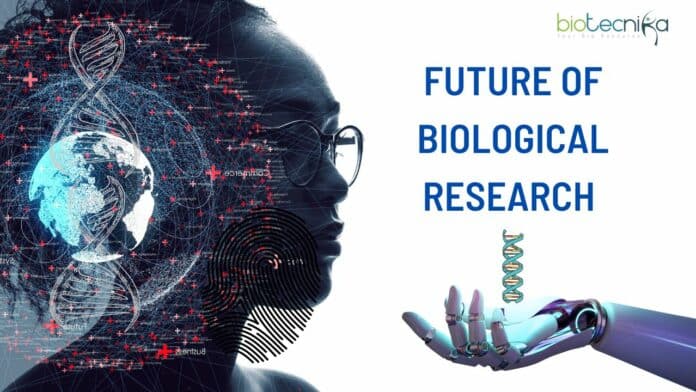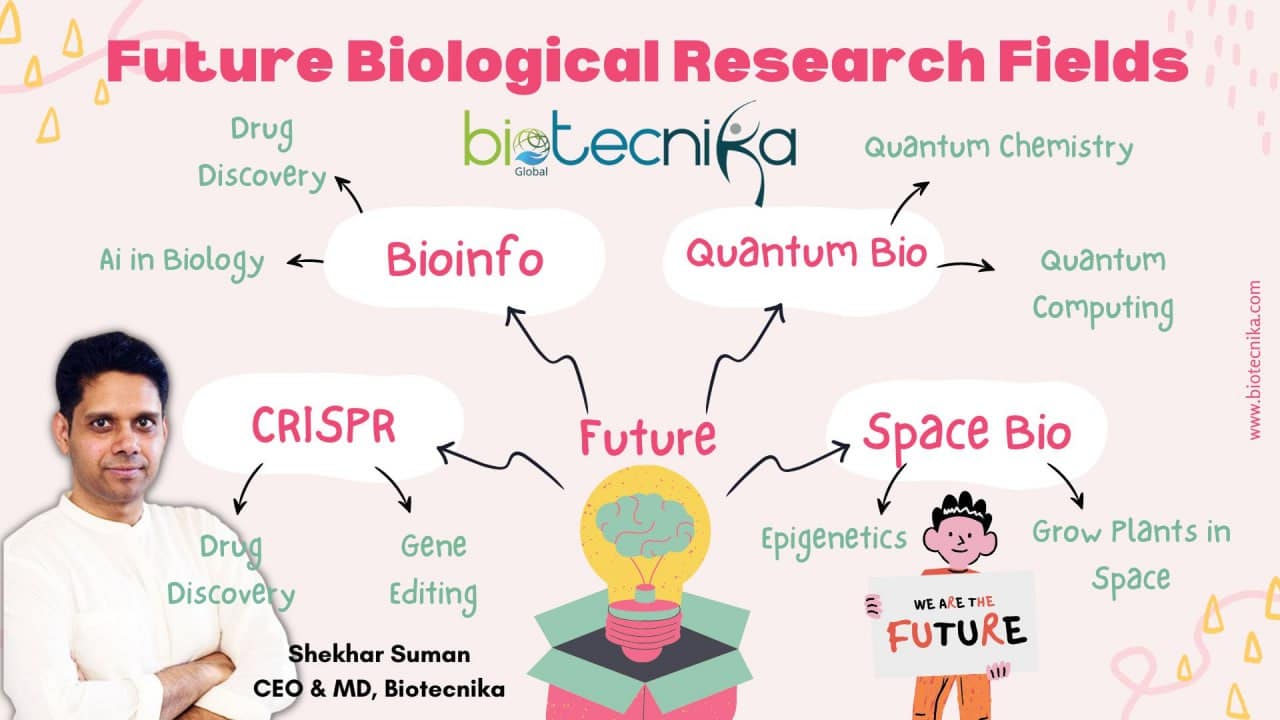As scientific knowledge continues to expand and technology advances, new avenues for biological research are emerging that have the potential to revolutionize the way we approach healthcare, environmental sustainability, and space exploration. Here are some of the most promising future biological research fields:
Bioinformatics
Bioinformatics involves the application of computer science, mathematics, and statistics to the analysis of biological data. This field has grown rapidly in recent years, with increasing amounts of genomic, proteomic, and metabolomic data being generated. One key application of bioinformatics is in drug discovery, where large datasets can be analyzed to identify potential drug targets or to predict the efficacy and toxicity of candidate compounds. Machine learning algorithms can also be used to develop personalized treatment plans based on a patient’s genetic makeup and medical history.
Check Out the Latest Industry Standard Bioinformatics Courses & Internships here
Another area where bioinformatics is making an impact is in the development of artificial intelligence (AI) for biological research. AI algorithms can analyze large datasets more quickly and accurately than humans, enabling researchers to identify patterns and make new discoveries. For example, AI has been used to predict protein structures, which is critical for understanding their functions and developing
drugs that target them.Quantum Computing
Quantum computing is a rapidly advancing field that can potentially transform many areas of biology. One area of interest is quantum biology, which involves studying how quantum mechanics influence biological systems. For example, quantum effects have been observed in photosynthesis, where energy is transferred through molecules in a way that is more efficient than classical physics would predict.
Quantum computing can also be used for quantum chemistry simulations, which can help researchers design new drugs and materials with improved properties. Quantum computers can perform impossible calculations for classical computers, such as simulating the behavior of large molecules with high accuracy.
CRISPR
CRISPR is a revolutionary gene editing technology that has transformed the field of molecular biology. With CRISPR, researchers can easily modify DNA sequences, enabling the creation of genetically modified organisms and the correction of genetic mutations that cause disease. In addition to its applications in basic research, CRISPR has tremendous potential for drug discovery. By modifying the DNA of cells, researchers can identify new drug targets and test the efficacy of candidate compounds in vitro.
CRISPR is also being used to develop new therapies for genetic diseases, such as sickle cell anemia and muscular dystrophy. By correcting mutations in the patient’s DNA, these therapies offer the potential for a permanent cure, rather than just symptom management.
CRISPR Bioinformatics Internship – 14 Days LIVE Hands-on Internship with Lab Protocols
Space Biology
Space biology is a rapidly growing field that seeks to understand how biological systems function in the unique environment of space. Research in space biology has implications for human health and well-being during space travel, as well as for the development of sustainable space habitats. One area of interest is epigenetics, which is the study of how gene expression is regulated by factors other than changes to the DNA sequence. In space, exposure to radiation and microgravity can cause changes to epigenetic marks, which may have long-term health effects for astronauts.
Space Biology Certification Course
Another area of research in space biology is the development of techniques for growing plants in space. Plants are critical for providing oxygen and food for long-duration space missions, but the unique challenges of space, such as low gravity and radiation exposure, make it difficult to grow plants in this environment. Research is underway to develop new techniques for plant growth that can overcome these challenges.
In conclusion, the future of biological research is bright, with many exciting avenues of investigation to explore. Bioinformatics, quantum computing, CRISPR, and space biology are just a few examples of the promising fields that will shape the future of healthcare, environmental sustainability, and space exploration. As researchers continue to push the boundaries of scientific knowledge, we can expect many more breakthroughs in the years to come.


































